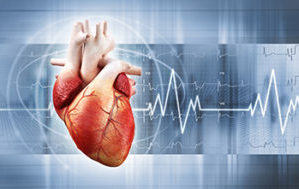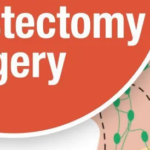Electrophysiology is a branch of cardiology that focuses on the electrical activity of the heart and its relationship with heart rhythm disorders, known as arrhythmias. Arrhythmias are abnormalities in the rhythm of the heart, which can manifest as irregular heartbeats or abnormal heart rates. These disturbances can range from harmless to life-threatening, and they affect millions of people worldwide.
What is Arrhythmia?
Arrhythmia refers to any irregularity in the heartbeat. Normally, the heart contracts and relaxes in a steady rhythm, pumping blood throughout the body. However, in individuals with arrhythmias, this rhythm is disrupted. Arrhythmias can occur when the electrical impulses that coordinate heartbeats are delayed, blocked, or travel along abnormal pathways. This disruption can lead to the heart beating too fast (tachycardia), too slow (bradycardia), or irregularly.
Symptoms of Arrhythmia
Symptoms of arrhythmia can vary depending on the type and severity of the condition. Common symptoms include:
- Palpitations (a feeling of fluttering or pounding in the chest).
- Dizziness or lightheadedness.
- Fainting or near-fainting spells (syncope).
- Shortness of breath.
- Chest pain or discomfort.
- Fatigue.
- Weakness.
Types of Arrhythmia
There are several types of arrhythmias, including:
- Atrial Fibrillation (AFib): The most common type, characterized by rapid and irregular beating of the upper chambers of the heart (atria).
- Bradycardia: When the heart beats too slowly, usually defined as a resting heart rate below 60 beats per minute.
- Tachycardia: When the heart beats too quickly, often defined as a resting heart rate above 100 beats per minute.
- Supraventricular Tachycardia (SVT): Episodes of rapid heart rate originating above the ventricles.
- Ventricular Tachycardia (VT): Rapid heart rate originating in the lower chambers of the heart (ventricles), which can be life-threatening.
Treatment of Arrhythmia
Treatment for arrhythmias aims to restore normal heart rhythm, control symptoms, and prevent complications. Options include:
- Medications: Antiarrhythmic drugs to regulate heart rhythm and rate.
- Cardioversion: Electrical shock to restore normal heart rhythm.
- Catheter Ablation: A procedure to destroy small areas of heart tissue that are causing the arrhythmia.
- Implantable Devices: Pacemakers to regulate heart rate or implantable cardioverter- defibrillators (ICDs) to monitor and correct abnormal heart rhythms.
- Lifestyle Changes: Quitting smoking, reducing alcohol and caffeine intake, managing stress, and maintaining a healthy diet and weight can help control arrhythmias.
Age Groups Affected
Arrhythmias can affect individuals of all ages, from infants to the elderly. However, the risk of developing arrhythmias increases with age, as structural changes and other heart conditions become more common. Certain types of arrhythmias, such as atrial fibrillation, are more prevalent in older adults.
Other Points to Consider
- Risk Factors: Factors that increase the risk of developing arrhythmias include high blood pressure, coronary artery disease, heart failure, diabetes, obesity, excessive alcohol or caffeine consumption, smoking, and certain medications or recreational drugs.
- Complications: Untreated arrhythmias can lead to serious complications, including stroke, heart failure, and sudden cardiac arrest.
- Diagnosis: Arrhythmias are diagnosed through a combination of medical history, physical examination, and diagnostic tests such as electrocardiogram (ECG), Holter monitor, event recorder, echocardiogram, and electrophysiology studies.
- Prevention: Adopting a heart-healthy lifestyle, managing underlying medical conditions, and following treatment recommendations can help prevent or minimize the occurrence of arrhythmias.
In conclusion, electrophysiology plays a crucial role in understanding and managing arrhythmias, which are common heart rhythm disorders with various causes, symptoms, types, and treatment options. Early detection, accurate diagnosis, and appropriate management are essential for improving outcomes and quality of life for individuals with arrhythmias.
(Author is Padma Bhushan Awardee, Chairman & HOD – BLK-Max Heart & Vascular Institute, Chairman Pan Max – Electrophysiology, BLK-Max Super Speciality Hospital, Delhi)








